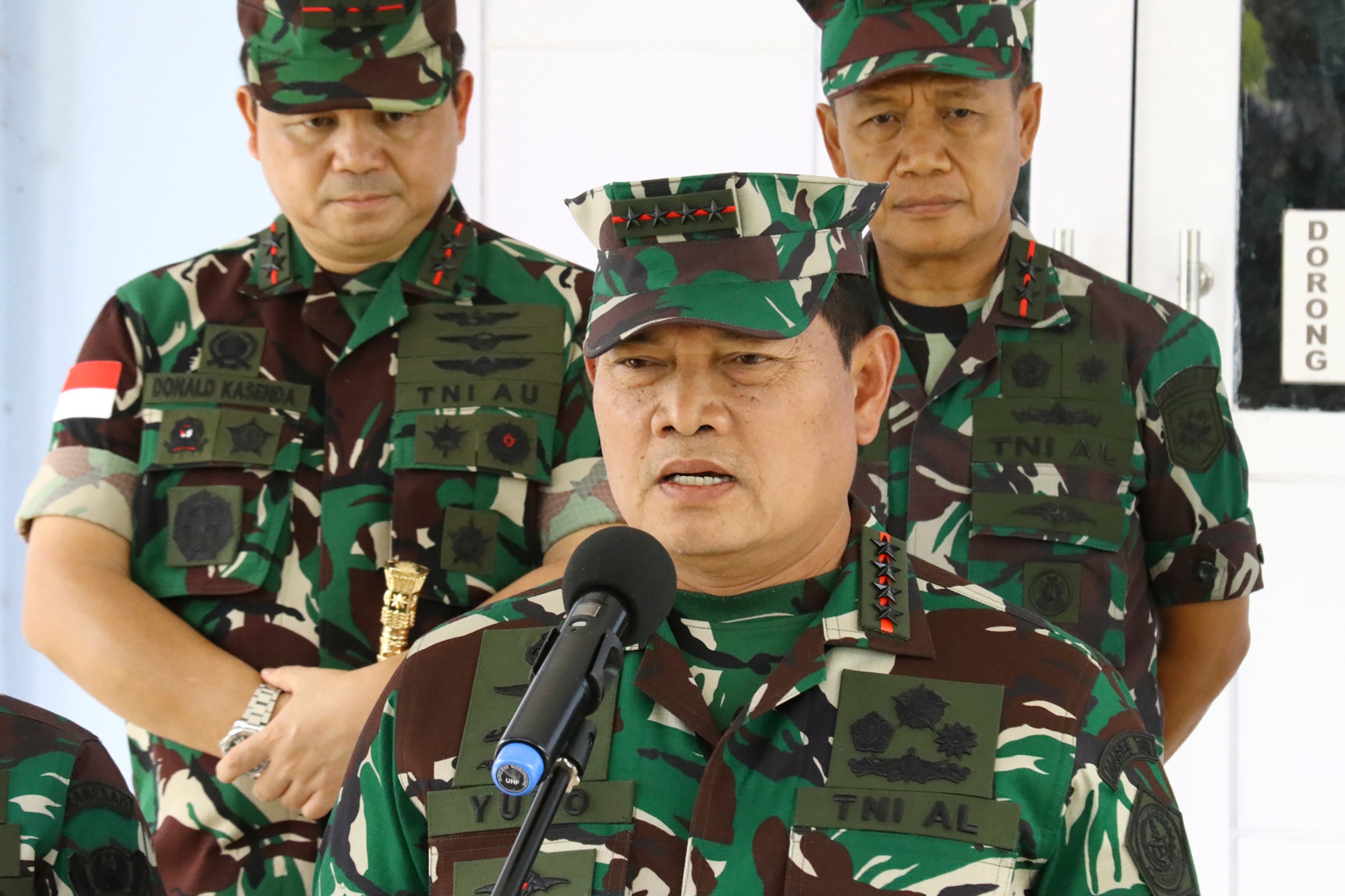Indonesia dismisses rebel claim of army deaths in Papua
Indonesia’s military chief has dismissed a separatist group claim that they had killed more than a dozen government soldiers who were searching for a New Zealand pilot taken hostage by the rebels in the restive Papua region

Your support helps us to tell the story
From reproductive rights to climate change to Big Tech, The Independent is on the ground when the story is developing. Whether it's investigating the financials of Elon Musk's pro-Trump PAC or producing our latest documentary, 'The A Word', which shines a light on the American women fighting for reproductive rights, we know how important it is to parse out the facts from the messaging.
At such a critical moment in US history, we need reporters on the ground. Your donation allows us to keep sending journalists to speak to both sides of the story.
The Independent is trusted by Americans across the entire political spectrum. And unlike many other quality news outlets, we choose not to lock Americans out of our reporting and analysis with paywalls. We believe quality journalism should be available to everyone, paid for by those who can afford it.
Your support makes all the difference.Indonesia’s military chief on Tuesday dismissed a separatist group claim that they had killed more than a dozen government soldiers who were searching for a New Zealand pilot taken hostage by the rebels in the restive Papua region.
Adm. Yudo Margono and the military’s top brass flew to the region on Monday after initial information said attackers from the West Papua Liberation Army, the armed wing of the Free Papua Movement, ambushed 36 government soldiers in the hilly district of Nduga in mountainous Papua Highlands province.
Rebel spokesperson Sebby Sambom said in a statement on Monday that his group's fighters were holding the remains of 12 soldiers, including nine who he said “were arrested and executed.” The rebels offered no proof to back up their statement.
Margono confirmed only one fatality and said four other soldiers were missing. The rest returned to their post, he said. Four were wounded and were in stable condition and evacuated to a hospital in Timika, a mining city in neighboring Central Papua province.
“I’m here to find out directly and accurately from our troops on the ground about the exact situation, so that we can evaluate our (rescue) mission for the pilot,” Margono told a news conference in Timika.
The soldiers were part of a group searching for Phillip Mark Mehrtens, a New Zealand pilot for the Indonesian aviation company Susi Air who was abducted by the rebels in February.
Sambom said in an earlier statement that the rebels carried out the attack in retaliation against Indonesia’s “massive military operation” in Papua and the killings of two rebels in a shootout with security forces last month.
Margono rejected the rebel claims as “fake news” and said the military operations in Papua were launched with a view to keep casualties at a minimum. However, he said that authorities will increase pressure on the rebels around several separatist strongholds, including in Nduga.
The rebels in February stormed a single-engine plane shortly after it landed on a small runway in Paro and abducted its pilot. The plane initially was scheduled to pick up 15 construction workers who had been building a health center after the rebels threatened to kill them.
Authorities will continue to prioritize a peaceful approach for the release of Mehrtens, Margono said.
The fighting is the latest in a series of violent incidents in recent years in Papua, a former Dutch colony in the western part of New Guinea that is ethnically and culturally distinct from much of Indonesia. Conflicts between indigenous Papuans and Indonesian security forces are common.
Papua was incorporated into Indonesia in 1969, after a U.N.-sponsored ballot that was widely seen as a sham. Since then, a low-level insurgency has simmered in the region, which is divided into five provinces since last year to boost development in Indonesia's poorest region.
Rebel attacks have spiked in the past year, with dozens of rebels, security forces and civilians killed.